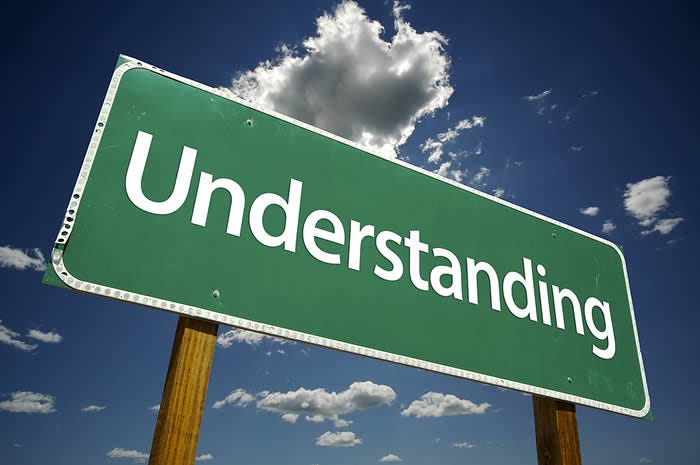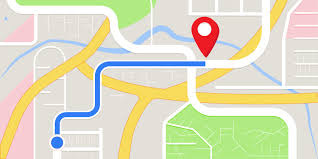When You Don’t See Eye to Eye
You can't believe they think that way? You don't understand why? If you wish there was a way to deal with that friction there is.
We all know people whose politics are radically different than ours. After a record year of election advertisements, these wounds are raw. In the last few weeks, you’ve likely heard people expressing denial, anger, and worse about other people’s beliefs. It’s part of the stages of grief. It’s natural and you don’t want to get stuck there.
I'm not here to tell you who to be friends with. You can pick your friends, just like you can pick your nose. One I recommend, the other not so much. Forgiveness is a whole thing that deserves its day in the sun; I’m not getting into that now. Tolerating is about making life better for everyone. Like it or not, we are stuck on this rock together. We shouldn't tolerate certain acts, but outside of them actively performing such acts, we should tolerate people even if we are working against their ideology.
A skillful approach to the situation starts with the right goals.
First, you can ease your short-term emotional damage and lower the amount of anger and distrust in the world. There is a dangerous amount of hate in the world. No amount of animosity is ever a good thing. It’s on all of us to do our part, in fact, that's the only way it can ever be addressed.
Second, you can add to your capacity to counter the long-term impact of their beliefs and actions.
Third, theoretically, you can lead someone to modify their own belief. It’s a stretch, but is possible over time.
This is the Way
First, set the stage for yourself by creating open-minded curiosity. Fix your intention on understanding where their beliefs come from. We all live in our reality. Our beliefs reflect years of exposure to ideas and experiences. The person you are about to speak to isn’t a demon. Most likely, they aren’t even evil. We’ll see.
Then explain to them you want to understand them. It will be easier to talk about an issue than their choice of a political candidate. Change enough issues-based positions, and the choice of candidate may happen naturally.
“I want to understand your point of view better. Do you mind if I ask a few questions?”
Simple is effective. The question here offers the person a chance to say no in a way that serves your aims. People feel safe when they have the liberty to say no. It gives them a sense of control of the situation. Even if they do mind, you likely didn’t do any harm in asking.
The table is set, now you ask them about an important issue that guides their voting choices. Let them pick the topic.
“What is an important issue to you when deciding how to vote?”
You could ask them about an issue you are interested in discussing. Insert their topic of choice in the following format
“Some say we should allow government funding to go to private schools. To start, given what you know, on a scale of 1 to 10, with 1 being strongly disagree and 10 being strongly agree, what is your number?”
This might feel a little formal but it’s essential. Stay neutral about your opinion. Getting a number on a scale implies their belief can shift without completely changing, and it can be used as a measure of change after a discussion.
At this point, you ask questions that help uncover what informed that belief. Why is your best friend. Active listening is your job. This means giving them your full attention and providing feedback to show you understand what they are saying.
“I agree charter schools can provide a choice that parents deserve.”
This type of affirmation builds rapport that helps lower animosity and can be leveraged to influence the person positively.
Along the way, you want them to discuss personal stories. Personal stories carry emotion. Emotion is much more powerful than logic and facts in forming and sustaining belief.
“Do you know anyone who has been stuck in a bad school?” or “Do you know anyone who went to a charter school?”
After hearing a story, connect or affirm again in a way you honestly can. Ask questions to learn more about the story if appropriate.
Now that you have built more of a connection, it’s your turn to share. Tell a personal story or one you have read that highlights your perspective. Avoid using facts or logical arguments.
“School x has been struggling because of the public money that’s flowing to private schools. The schools tech department doesn’t have money to replace failing 3d printers.”
Try to find a common thread about the topic that speaks to both perspectives. Name a common value or enemy that bridges the stories. Ask them what they think about that perspective.
Being a story is important. Stories are how humanity has shared experiential knowledge. It impacts at an emotional level where perspective is formed. If we share facts here those facts are analyzed and judged from a pre-existing emotional bias.
How Does This Help Me Meet My Goals
Understanding builds empathy and compassion. You get to separate the actions and beliefs from the person. Seeing where the world nudged this person that way helps you realize they weren’t born the Grinch's evil cousin. The world isn’t black and white, it’s black, white, and a ton of shades of grey. When our vision of the world is strictly black and white we aren’t seeing reality. If we aren’t seeing reality we are going to have a hard time dealing with it.
Knowing perspectives and arguments that lead to conclusions you disagree with helps counter them. Every day, every one of us has the opportunity to put our truth into the world. You never know who or when someone will stumble across that truth at the right moment and be nudged on the right track. The internet has some rough edges, but it will be okay if we keep feeding it the good stuff.
The process outlined above is a practice called Deep Canvassing. It was developed by political activists who use it to change people's minds when canvassing. If you want to learn more, plenty of material exists.
Where To Go From Here
Try it out; talk to people. It will take time to become good at it. Get involved with a political party's local branch or an issues-based non-profit organization. They can provide a framework to develop your ability and focus your efforts toward real change. It is more effective to talk to someone you have a relationship. It may be easier in some respects to talk to strangers. Your mileage may vary; try both.
You may find it very rewarding once you get used to having discussions that matter. Over time, you may feel a difference in your life. Increased peace of mind from a healthy change in attitudes and beliefs.






